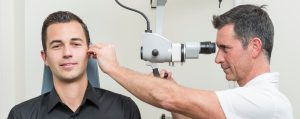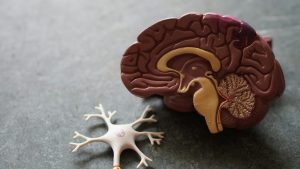The Ringing Reality: 5 Leading-Edge Insights into the Causes of Tinnitus You Shouldn’t Ignore

16 December 2023
Ring, ring! If you’re hearing that in your ears and there’s no telephone around, you’re probably experiencing tinnitus, a medical phenomenon that can range from a low-level buzz to a high-pitched ringing or even musical notes. Now, tinnitus isn’t just a nuisance; it’s a bona fide medical symptom. And the latest advancements in ENT medicine provide us with groundbreaking diagnostic and treatment options.
1. Progressive Hearing Loss (Presbycusis) and the Promise of Gene Therapy
First off, let’s dive into the most common offender: presbycusis, or age-related hearing loss. Usually kicking in around the age of 50, presbycusis brings along its tag-along annoyance—tinnitus. But here’s the kicker: new advancements in gene therapy aim to regenerate damaged auditory hair cells, potentially not only improving hearing but also alleviating tinnitus symptoms. So, this is not just about hearing aids anymore; it’s about potential cellular regeneration.

2. Acoustic Trauma and Real-Time Hearing Health Monitoring
We’re living in the era of smart devices, and guess what? They’ve made their way into the field of hearing protection. Next-gen earplugs and headphones now come equipped with real-time decibel monitoring. If you’re at a concert or a noisy work environment, these devices can alert you when the noise level becomes hazardous. The younger folks who are more prone to noise-induced tinnitus can especially benefit from such technological advancements. Early intervention through medications and auditory stimulation therapies is also showing promise in clinical trials.
3. Ménière’s Disease and Vestibular Rehabilitation
Pour ce qui est de la maladie de Ménière, qui se manifeste par des vertiges, une perte auditive et de lWhen it comes to Ménière’s disease, which presents with vertigo, hearing loss, and tinnitus, vestibular rehabilitation therapies have become a cornerstone of treatment. This involves a series of exercises that help train your brain to adapt to the imbalance signals it’s receiving. Cutting-edge research is also exploring the role of intratympanic injections—directly injecting medication into the middle ear—to alleviate symptoms.

4. Pulsatile Tinnitus and Advanced Imaging Techniques
Avec les acouphènes pulsatile, c’est comme si vous aviez une fanfare dans votre tête qui marche au rythme de votre propre cœur. L’angiographie par résonance magnétique haute définition (ARM HD) a révolutionné le diagnostic des conditions vasculaires liées à l’acouphène. Cette technologie offre une imagWith pulsatile tinnitus, it’s like you have a drumline in your head that’s marching to the beat of your own heart. High-definition Magnetic Resonance Angiography (HD-MRA) has revolutionized the diagnosis of vascular conditions related to tinnitus. This technology offers detailed imaging of blood vessels in and around the ears, aiding in precise diagnosis and treatment.
5. Idiopathic Tinnitus and Cognitive Behavioral Therapy (CBT)
And then we have idiopathic tinnitus, the puzzling kind that doesn’t have an apparent cause. But don’t lose hope! Advanced cognitive behavioral therapy techniques, which integrate mindfulness and biofeedback, are proving effective in reducing the psychological distress associated with idiopathic tinnitus. Many patients find relief and a significant improvement in their quality of life with this multidisciplinary approach, which often involves audiologists and psychologists along with ENT specialists.
So, you see, tinnitus isn’t just a “ring it and forget it” situation. The field has seen remarkable advancements, offering innovative diagnostic options and treatments that range from gene therapy to smart tech and even psychological interventions. If you’re experiencing persistent tinnitus, it’s crucial to get a thorough examination from a healthcare provider, often followed by a specialized consultation with an ENT expert.
Don’t just suffer in silence. There’s a whole world of scientific advancements out there aimed at diagnosing and treating your symptoms, and ultimately, improving your quality of life.
And there you have it—your guide to the cutting-edge advancements in understanding and treating tinnitus. Listen to your body, literally and figuratively, and let science lead the way to better hearing health.
Autres articles
SYMPTOMS OF A RUPTURED EARDRUM AND MOVEMENTS TO ADOPT
A ruptured eardrum is very common and may occur for many reasons. How do you recognize it and what should…
Hearing Aids: A Crucial Tool in the Fight Against Dementia
You may not have given much thought to how hearing impacts brain health in the modern world where we’re always…
5 TIPS FOR GOOD EAR WAX REMOVAL
Updated on August 1st, 2023 (updated with additional tips) EEarwax is a natural substance that the body produces to protect…


